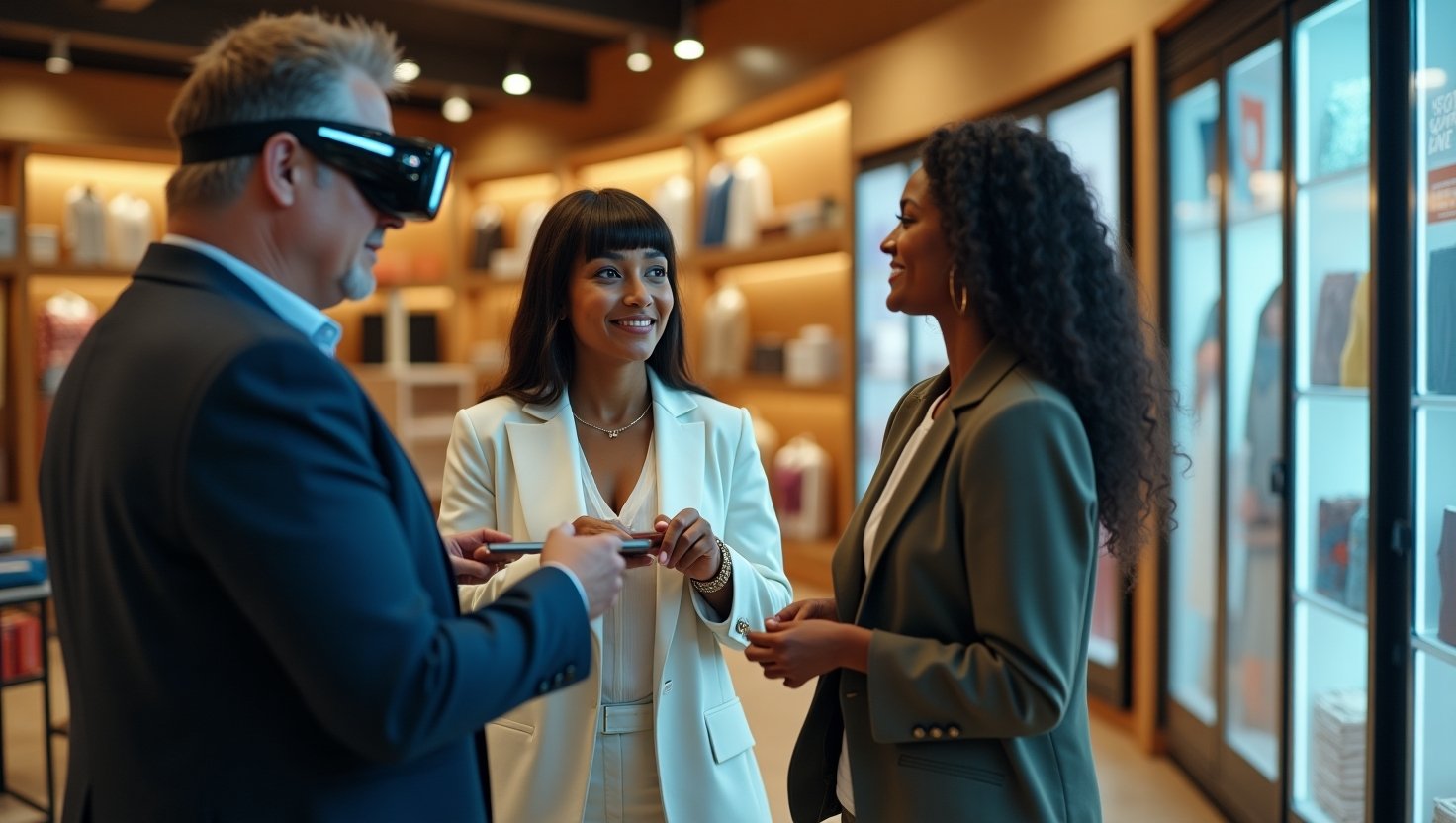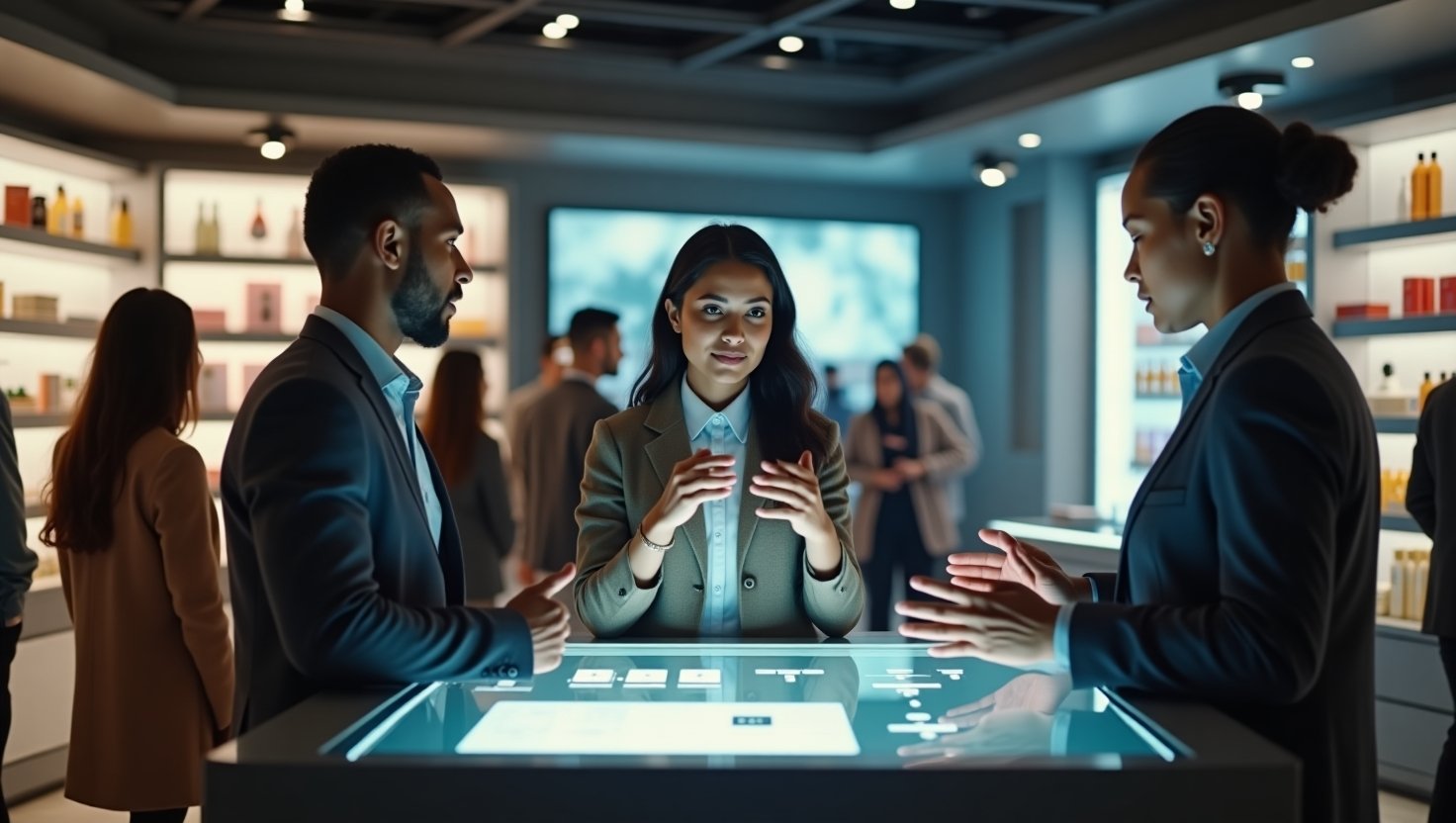The Disruptive Role of AI Influencers in Shaping Consumer Trends
In the age of digital transformation, AI and influencers are not mere buzzwords; they are catalysts of retail evolution. As the line between technology and marketing blurs even further, businesses are faced with the unrelenting task of adapting to a landscape dominated by AI influencers and shifting consumer trends. Are retailers really ready to navigate this new terrain?
AI and Retail: A New Dynamic Duo
Artificial intelligence is reshaping consumer behavior in ways previously unimaginable. Much like how electricity revolutionized industries in the 19th century, AI is the 21st-century powerhouse driving retail innovation. For instance, Walmart’s integration of AI tools has dramatically enhanced shopping experiences, enabling customers to navigate stores efficiently and personalize their shopping list (source: Retail Dive).
The recent move by Dollar General to appoint Travis Nixon as their Senior VP of AI Optimization is a testament to AI’s transformative power. His role involves optimizing supply chain and store operations through AI, promising a significant boost in efficiency and customer satisfaction (source). This is just the tip of the iceberg, as more companies are bound to follow suit, revamping their infrastructure in favor of AI’s limitless potential.
The Dawn of AI Influencers
But AI isn’t just about backend operations; it’s a force on the frontline of retail marketing. Enter, AI influencers—digital entities capable of engaging consumers more personally and efficiently than any human could. These influencers are leveraging data to predict what you want before you know it yourself. Imagine a digital personal shopper who not only recalls your preferences but understands your emotional state, suggesting items that fit or uplift your mood.
Such digital personas could easily eclipse the traditional influencer’s role, offering a future where AI influencers dictate trends as much as they follow them. Companies like Simon-Kucher are already exploring these dynamics through curated podcasts that delve deep into how AI and influencers are reframing retail (source).
Retailers at a Crossroads: Adapt or Perish
The retail sector is standing on a precipice, and it’s imperative for businesses to adapt to the AI influencers consumer trends. Failure to do so could spell disaster, as consumer loyalty shifts away from brands unable to meet evolving expectations. The idea is not just survival; it’s about thriving in a world where AI shapes consumer desires.
This evolution isn’t solely about adopting new technologies but also about reshaping corporate cultures to embrace innovation. As Dollar General‘s growth statistics highlight, those who welcome AI into their strategy see tangible benefits—a 5.1% increase in net sales is not trivial (source).
The Future of Shopping: Predictive and Personalized
What lies ahead is a future where shopping becomes an increasingly personalized and predictive affair—a future of shopping filled with AI assistants who not only accompany consumers on their purchasing journey but also anticipate their next steps. This will transform retail into a dynamic playground where the boundaries of creativity, technology, and consumer experience are continuously pushed.
The retail evolution has only just begun, and as AI and influencers entangle further, the question remains: Are we ready to keep up with the pace of progress?
The forecast is clear—embracing the synergy between AI and influencers is not optional; it’s essential. Retailers who adapt will not only survive but redefine the shopping experience, leading the charge into a new era of consumer engagement.










